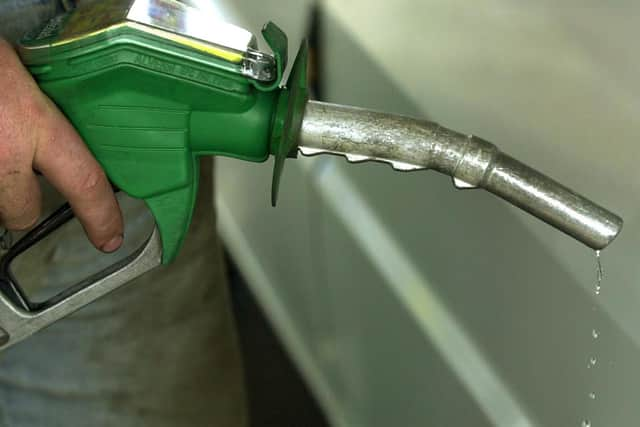Shock fall in inflation could prove blip amid winter warning
and live on Freeview channel 276
The UK's rate of consumer inflation cooled in July to 2 per cent, down from near three-year highs of 2.5 per cent in June, but was impacted by petrol prices hitting highs not seen for nearly eight years.
The Office for National Statistics (ONS) said the consumer prices index (CPI) is now in line with the Bank of England's target and was reduced due to a fall in clothes prices as summer sales took place.
Advertisement
Hide AdAdvertisement
Hide AdThe cost of recreational goods and services also fell, particularly the cost of routers, web cams and computer software, the ONS noted.


Experts had been forecasting a reading of about 2.3 per cent for the month.
The Bank of England has warned previously that inflation could approach 4 per cent by the end of the year.
Derrick Dunne, chief executive of You Asset Management, said: “Much to the relief of monetary policy-makers, the UK’s red-hot price inflation has somewhat cooled for the first time since February.
Advertisement
Hide AdAdvertisement
Hide Ad“For now, the threat of inflation has by no means subsided. Today’s data is a welcome reminder that the danger is transitory, but with a possible peak as high as 4 per cent this year, a defensive rate rise is still to be expected.”
Steven Cameron, pensions director at Edinburgh-based financial provider Aegon UK, said: “While this month’s fall may look like a welcome reprieve, it may be a temporary blip ahead of further rises later in the year.”
The ONS said petrol was the biggest contributing factor to inflation, with average petrol prices at 132.6p per litre in July 2021, compared with 111.4p a year earlier. The July price is the highest recorded since September 2013.
In comparison, the UK was coming out of the first lockdown at this point last year and petrol prices were starting to recover after a period of reduced demand.
Advertisement
Hide AdAdvertisement
Hide AdSecond-hand car sales also contributed to the latest figure. They are up 6.6 per cent on pre-pandemic levels and have grown compared with a year ago when people were stuck at home due to the pandemic.
The largest downward contribution to the inflation change was recreation and culture, with recording media and games, toys and hobbies down. Package holidays also fell slightly compared with a year ago.
The retail price index (RPI), a separate measure of inflation, increased to 3.8 per cent - the number in July is typically used to calculate rises in regulated rail fares.
Sarah Coles, personal finance analyst at Hargreaves Lansdown, noted: “Next month, when the artificial bump in 2020 falls out of the figures, we’re going to feel the pain from these price rises more keenly, so inflation will rise again. The Bank of England expects it to hit 4 per cent towards the end of 2021.
Advertisement
Hide AdAdvertisement
Hide Ad“At that point, it expects it to drop back, as the impact of the first lockdown drops out of the figures, and supply bottlenecks unwind, so there’s not as much pressure on prices.”
A message from the Editor:
Thank you for reading this article. We’re more reliant on your support than ever as the shift in consumer habits brought about by coronavirus impacts our advertisers. If you haven’t already, please consider supporting our trusted, fact-checked journalism by taking out a digital subscription: www.scotsman.com/subscriptions
Comment Guidelines
National World encourages reader discussion on our stories. User feedback, insights and back-and-forth exchanges add a rich layer of context to reporting. Please review our Community Guidelines before commenting.
